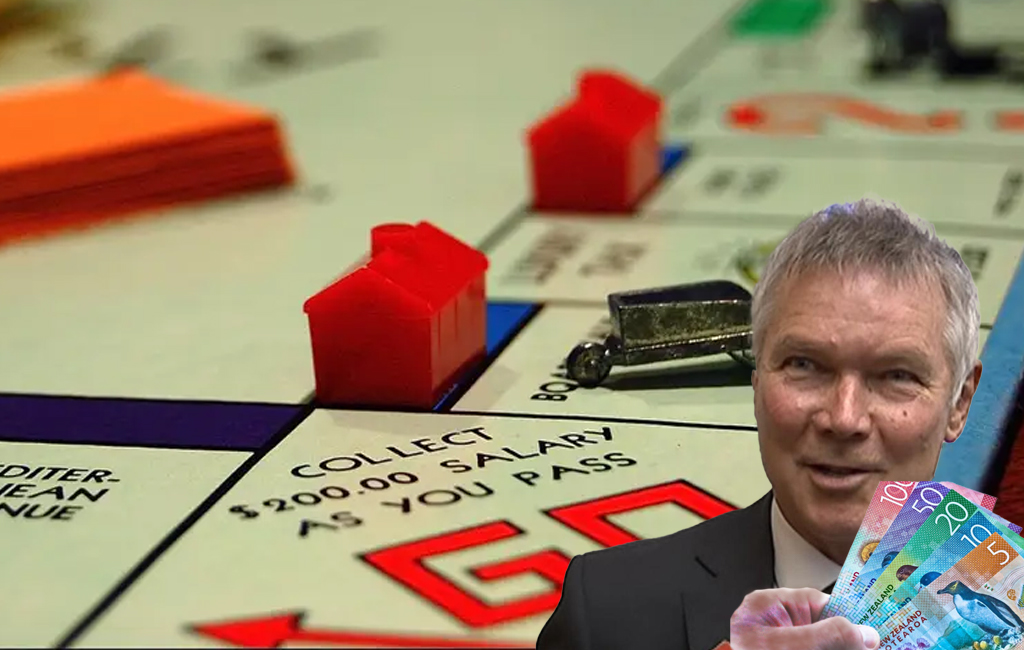GORDON LIGHTFOOT | Politics
PAY TO PLAY
Revenue Minister David Parker is sick and tired of dads around the country dominating games of Monopoly and not paying their fair share of tax.
Parker has proposed that all income generated during games of Monopoly, whether it’s in New Zealand dollars or imaginary money, will incur a tax bill that must be paid to IRD (in New Zealand dollars only).
The proposal comes following a report that showed New Zealand’s super-wealthy (families with a net worth of more than $50m) pay a median tax rate of only 9.4% once ownership of businesses, properties and other investments were taken into account. The calculation presumably included all capital gains, including imaginary gains that occur when the sale of a property doesn’t actually happen.
Minister Parker would not be drawn on whether his party would be pushing for a capital gains tax, but said that Monopoly players owning “Park Lane” should be paying their fair share. “It’s about having a fairer tax system for everyday New Zealanders. Most people are sick of the super-rich, including dads wasting their kids at Monopoly.
“For the low income families taking on extra jobs and doing over-time, this change will go a long way. Not everyone is lucky enough to land on the dark blue squares and build hotels on them.”
Parker has also proposed that when the super-wealthy pass ‘GO’ they would not collect two hundred dollars. “That money is meant for low income families and individuals just trying to make ends meet,” he said.
“The super-rich who have had it easy for so long will also be ineligible for get-out-of-jail free cards.”
More to come.
Want to support the Whakataki Times? Head over to the support page and make a contribution. You can also follow us on Insta.









